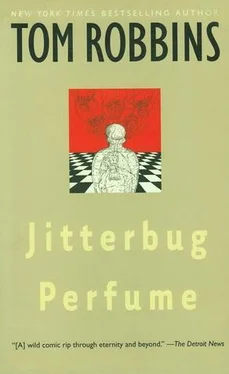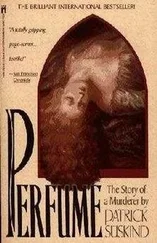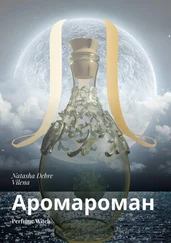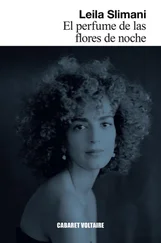It was just such a group that on that fateful afternoon descended on a young man who was timidly rattling the latch at the shop's locked door.
“What is your business here, boy?” asked one of the monks.
“I am making delivery, Father.”
“Delivery from whom?”
“From the glassblower. I am his apprentice.” This last, the boy said proudly.
“And what is in the package?”
“Why, glass, Father. A glass bottle.”
“A bottle of what?”
“A bottle of nothing.”
“Eh?”
“The bottle is empty. The woman of this shop commissioned it from my master. Someday I shall blow fine bottles and—”
“Hush! We shall have a look at this bottle.”
“But, your holiness—”
The monk cuffed the lad on the ear. It felt so good he cuffed him again. “We shall see the bottle!”
Confused, the boy drew away, clutching the package to his silica-caked apron. His ear was turning as red as a whore's lantern. The circle of monks closed around him. “The bottle! The bottle!” they demanded. They forced the package from the frightened boy's grasp and tore it open. A shaft of afternoon sunlight illuminated a bluish container, shaped like a perfume vessel, though three or four times larger. As if focusing, the sun ray narrowed its beam upon a finely wrought figure embossed on the glass. It was the monks' turn to pale.
For a moment or two, they were speechless, and there was much trembling of skullcap and rosary. “'Tis him ,” one managed to whisper. “Him,” repeated another, somewhat louder. “The incense shop and him,” said a third. “'Tis what we thought all along. They are allied with Lucifer!”
The monk who was holding the dreadful object raised it, cocking his arm as if to dash it against the cobblestones, but, lo and behold, the bottle squirmed free from his fingers and floated away, flying under its own power — or so it seemed to the terrified monks — about five feet above the street. Slowly it bobbed down the block, rounded a corner, and disappeared. Only then, crossing themselves so furiously that it was a wonder no wrists were sprained, only then did the monks become fully aware of the vulgar aroma — naturally, they assumed it was sulfur or brimstone — that the bottle left in its wake.
Entering the shop from the rear (a familiar route for a Greek), Pan fetched the bottle up to the sitting room, where Kudra admired it at length. Normally, Alobar would have been too concerned about the monks to pay much attention to an oversize perfume bottle, but preparations for the dematerialization attempt had so tranquillized him that he brushed aside all thought of events in the street, concentrating, instead, on the pale fruit of the glassblower's rod.
“How exactly the fellow copied your design!”
“Yes,” said Kudra, “isn't it splendid? Pan, it is you on the side. What think you?”
Pan rarely replied to direct questions, but in this instance he did stampede a flock of little sighs, hairy and wistful: full udders and quick feet running over a cliff.
“The rendering flatters you, I daresay,” joked Alobar to Pan. Then, to Kudra he said, “It is a marvelous container for a potentially marvelous liquid, but, alas, it is all academic now. We still haven't the what-you-call-it, base note, and, besides, if the three of us can rematerialize ourselves in the New World, Pan shall not require a cover for his stink.”
“Oh, I would not be so sure of that. He might find a cover handy even in a wild and distant land. And should he need it not, well, still I want that base note, I want that perfume, I want this bottle filled with its intended contents. I want it for you and me, now, as much as for Pan.”
“But, why?”
Slowly, Kudra turned the bottle in her hands. Then, she sat it on the floor between them. It was about six inches tall, square-bottomed but rounded at the shoulders, with a short, flared neck tightly fitted with a glass stopper. There was a ridge down each side of the body, seams left by the wooden mold in which it was formed. The neck, lip, and stopper were seamless, having been formed by hand and added after the blowing. On the bottom of the bottle was a scar not unlike an umbilicus, where an iron pontil rod had held the hot, freshly blown bottle while its neck was being shaped. The cute little pontil scar measured one cubic centimeter, the same, on the average, as the human navel that it resembled. (A Harley-Davidson motorcycle with a 1000cc engine has room in its chamber for a thousand belly buttons, a piece of information that may or may not interest the Hell's Angels.) The bottle glass was clear but had a bluish tinge because of impurities, and it contained the odd bubble, ripple, and tiny bit of stone. One side of the body was embossed with an oval “frame,” within whose boundaries there was an image of none other than Mr. Goat Foot himself, in a jaunty stance, his horns freely displayed, his reeds pressed to his leer, a garland of weeds encircling his bushy brow.
The bottle was between them, and Kudra spoke over the top of it. “Suppose, just suppose, that we should become separated in our — our journeys into the Other Side. If we were marked by a unique scent, a fragrance all our own, we could always identify each other, even if the light was not clear, even if our vision was clouded or our shapes physically altered; we could find each other no matter if we were lost in the rooms of Death.”
That kind of talk was a bit spooky for Alobar's taste. He suggested that they get on with the experiment while he was still in the mood. So they shut their eyes again and reset their breaths upon a circular track. Kudra's plan was that they should slow themselves down until their “humors” buzzed at a rate below that of the visible world, then merge with the vibrations and broadcast themselves through a crack. Which crack? Why, the crack at the top of the Indian rope trick. Okay. Alobar would give it a whirl. After all, his goal always had been to be complete, and were he restricted to occupancy of this one world, as round and fully packed as it might be, he supposed he could not claim completion. He was as nervous as a praying mantis at an atheists' picnic, but he bore down gently, intensifying his concentration, letting go of his attachment to gravity, applying the brakes to his bodily functions. Just before he abandoned himself to the process, however, he heard Kudra whisper, “The bottle must be filled.”
From corner to corner, silence webbed the room. Gradually, there commenced a ringing in Alobar's ears. The sound was produced, no doubt, by his central nervous system, though he imagined it the ringing of the spheres. Stars, in fact, had begun to colonize the darkness behind his lids. At first they were as faint and icy as the pimples on an albino's backside, but they grew in brilliance and size until a sewing basket of flaming buttons spilled on his head, and the Great Bear raked him with her sidereal paws.
Motionless, he sat inside himself as if in a planetarium. Neither a twitch nor a flicker, a pulse nor a discernible breath marred his smooth facade. His heart slowed until it seemed to have frozen in its burrow. His lungs were as immobile as sponges. The wheel rolled to a stop, and bubbles of oxygen slid off of it to skitter upon the surface of his stagnant blood like waterbugs attending to some dizzy business. He tingled, he sparked, and he rang. He felt light and loose and large. The more static his functions became, the more he seemed to expand, as if he had entered a state where there was progress without duration, advance without movement.
He was becoming unstuck, he was sure of that — his bones were no longer wrapped in flesh but in clouds of dust, in hummingbirds, dragonflies, and luminous moths — but so perfect was his equilibrium that he felt no fear. He was vast, he was many, he was dynamic, he was eternal.
Читать дальше












